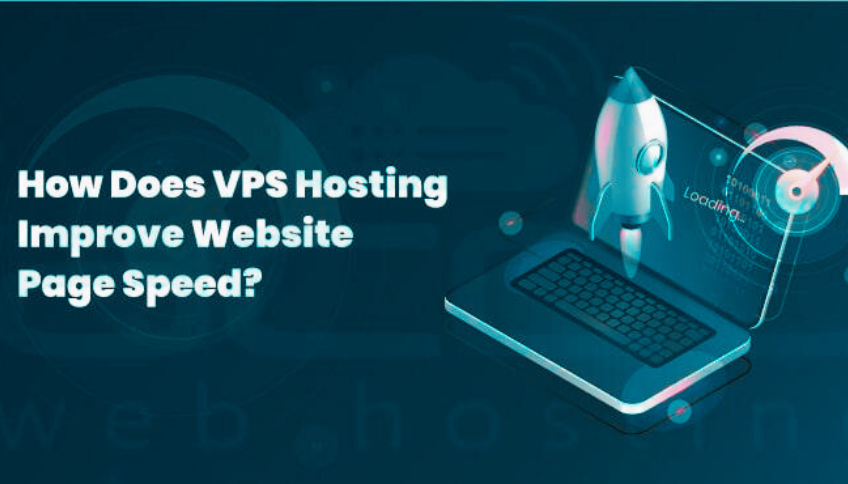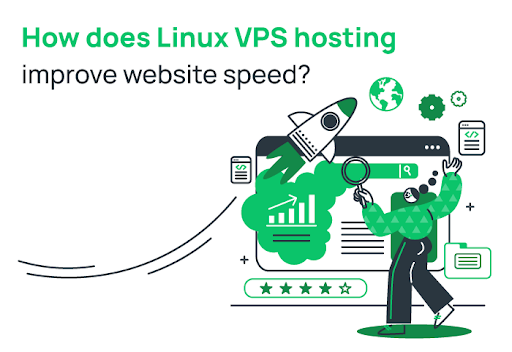Improving website speed is crucial for user experience. One effective way is using better hosting.
Website speed affects how visitors interact with your site. Slow loading times can frustrate users, causing them to leave. This not only impacts user satisfaction but also your site’s search engine ranking. A faster website keeps visitors engaged and can improve your business outcomes.
Better hosting can significantly enhance your website’s speed. Quality hosting services offer improved server performance, better resource allocation, and faster load times. This blog will explore how better hosting can boost your website speed. Understanding this will help you choose the right hosting service to keep your website running smoothly and efficiently. Ready to make your site faster? Let’s dive in.

Credit: fastercapital.com
Importance Of Website Speed
Website speed plays a crucial role in the success of your online presence. A fast-loading website keeps visitors engaged and encourages them to stay longer. Slow websites, on the other hand, can frustrate users and drive them away. Improving website speed with better hosting is essential for providing a seamless user experience and boosting your site’s performance.
User Experience
User experience is paramount in retaining visitors. A fast website ensures that users can navigate easily without delays. Speedy pages load content quickly, making it easy for users to find what they need. This leads to higher satisfaction and increases the chances of repeat visits. A slow website can frustrate users, causing them to leave and not return.
Seo Benefits
Website speed also impacts search engine optimization (SEO). Search engines like Google prioritize fast-loading websites. They rank them higher in search results, improving visibility. Fast websites reduce bounce rates, which is a key factor in SEO. Better hosting ensures your site performs well, leading to improved search engine rankings.

Credit: www.estnoc.ee
Choosing The Right Hosting Provider
Choosing the right hosting provider is crucial for improving website speed. The hosting provider impacts your site’s performance, reliability, and user experience. A good hosting provider can make your site faster and more efficient. This section will help you choose the right hosting provider. We will discuss types of hosting and factors to consider.
Types Of Hosting
There are several types of hosting available, each with its benefits.
Shared Hosting: This is the most basic type. Multiple websites share the same server. It is affordable but can be slower.
VPS Hosting: Virtual Private Server (VPS) hosting gives you a dedicated portion of a server. It offers better performance than shared hosting.
Dedicated Hosting: You get an entire server dedicated to your website. This type offers the best performance and reliability.
Cloud Hosting: Your website uses resources from multiple servers. It is scalable and reliable, making it great for growing websites.
Factors To Consider
Performance: Look for a hosting provider with strong performance. Fast load times are essential for user experience.
Uptime: Check the provider’s uptime guarantee. A higher uptime means your site is available more often.
Support: Good customer support is crucial. Ensure the provider offers 24/7 support to handle any issues.
Security: Security features protect your site from threats. Look for providers that offer SSL certificates, backups, and firewalls.
Scalability: Choose a provider that allows your site to grow. Scalability ensures your website can handle increased traffic.
Shared Vs. Dedicated Hosting
Choosing the right hosting can significantly boost your website speed. The type of hosting you select impacts performance and reliability. Shared and dedicated hosting are two popular options. Each has its own advantages and disadvantages. Understanding these can help you make an informed decision.
Pros And Cons
Shared hosting means your website shares server resources with other sites. This option is usually cheaper. But it may lead to slower speeds during high traffic periods. Your site might also be affected by other sites on the same server.
Dedicated hosting offers a server solely for your website. This means better performance and reliability. However, it is more expensive. You also need some technical knowledge to manage the server effectively.
Performance Differences
Shared hosting can slow down your site if other sites on the server get busy. You might face issues during peak times. This can affect user experience and SEO rankings.
Dedicated hosting provides consistent speed and performance. Your site does not share resources with others. This results in quicker load times and a smoother user experience. It can handle high traffic better, making it ideal for large websites.
Benefits Of Vps Hosting
Choosing the right hosting can greatly improve your website speed. One option to consider is VPS hosting. VPS, or Virtual Private Server, offers many benefits. It provides more resources, better performance, and greater control over your server environment. Let’s explore some key benefits of VPS hosting.
Scalability
VPS hosting is highly scalable. This means you can easily adjust resources based on your needs. If your website grows, you can add more CPU, RAM, or storage. This flexibility helps maintain fast load times.
Cost-effectiveness
VPS hosting is cost-effective. You get dedicated resources without the high cost of a dedicated server. This makes it a smart choice for small to medium-sized websites. You only pay for what you use, making it budget-friendly.
Using Content Delivery Networks (cdns)
Using Content Delivery Networks (CDNs) can significantly improve your website speed. CDNs distribute your content across multiple servers worldwide. This means users get the content from a server closest to them. The closer the server, the faster the load time. This results in a better user experience and can lead to higher engagement.
How Cdns Work
CDNs work by caching your website content in various locations. These locations are called Points of Presence (PoPs). When a user visits your site, the CDN delivers the content from the nearest PoP. This reduces the distance data travels, speeding up load times. CDNs also balance traffic. They distribute the load evenly among servers. This prevents any single server from getting overwhelmed.
Cdn Providers
Several CDN providers offer reliable services. Some popular ones include Cloudflare, Amazon CloudFront, and Akamai. Cloudflare is known for its security features. Amazon CloudFront integrates well with other AWS services. Akamai has a large network of servers. Each provider has unique features. Choose one that fits your needs. Consider factors like cost, ease of use, and customer support.
Optimizing Server Configuration
Optimizing server configuration is crucial for improving website speed. A well-configured server ensures faster load times and better user experience. This involves several techniques that can be implemented to make your server more efficient.
Caching Solutions
Caching solutions can significantly enhance your website’s speed. By storing frequently accessed data, caching reduces server load and speeds up response times. There are various types of caching, such as browser caching, server caching, and content delivery network (CDN) caching. Implementing these can lead to noticeable improvements in website performance.
Compression Techniques
Compression techniques help in reducing the size of files sent from the server to the user’s browser. Smaller file sizes mean faster loading times. Gzip and Brotli are popular compression algorithms that can be used to compress HTML, CSS, and JavaScript files. Using these techniques can lead to faster website speeds and a better user experience.
Monitoring And Maintenance
Ensuring your website runs smoothly involves regular monitoring and maintenance. A well-maintained site performs better and has fewer issues. Monitoring and maintenance are essential for improving website speed with better hosting.
Regular Updates
Regular updates keep your website secure and fast. Always update your content management system (CMS) and plugins. Outdated software can slow down your site and pose security risks. Keep everything current to ensure peak performance.
Performance Monitoring Tools
Performance monitoring tools help track your website’s speed. Use tools like Google PageSpeed Insights or GTmetrix. These tools provide insights into your site’s performance. They highlight areas that need improvement. Regularly check your site’s performance to maintain speed.
Case Studies And Success Stories
Improving website speed is crucial for user experience and SEO. Better hosting can make a significant difference. This section provides case studies and success stories. These examples show real-world results from switching to better hosting.
Real-world Examples
One e-commerce site struggled with slow loading times. They switched to a high-performance hosting provider. Their page load time dropped from 10 seconds to 2 seconds. This change increased their sales by 25% within a month.
Another example is a content-heavy blog. It experienced frequent downtime with shared hosting. They moved to a managed WordPress host. Their site became faster and more stable. Their traffic increased by 40% as a result.
Lessons Learned
Faster websites lead to better user engagement. Users stay longer on sites that load quickly. They are more likely to return.
Reliable hosting reduces downtime. This ensures your site is always accessible. Consistent uptime builds trust with your audience.
Investing in better hosting pays off. It improves both speed and reliability. This, in turn, boosts overall site performance.

Credit: www.onrec.com
Frequently Asked Questions
What Is Website Hosting?
Website hosting is a service that allows your website to be accessible on the internet. It stores your website files on a server.
How Does Hosting Affect Website Speed?
Hosting affects website speed by determining how quickly your site’s data is processed and delivered to users. Faster servers improve load times.
What Are The Types Of Hosting?
There are various types of hosting: shared, VPS, dedicated, and cloud hosting. Each offers different speeds and resources.
Why Is Faster Hosting Important?
Faster hosting improves user experience, reduces bounce rates, and boosts search engine rankings. It ensures quick loading times for visitors.
Conclusion
Improving website speed with better hosting is essential. A faster site boosts user experience. It also helps your search engine rankings. Choose a reliable hosting provider. Ensure they offer high-speed servers. Regularly monitor and optimize your site. This keeps it running smoothly.
Your visitors will thank you. In the end, a quick site leads to better engagement. Make the change today. Enjoy the benefits of a faster website.